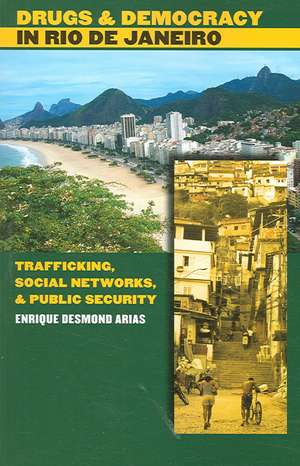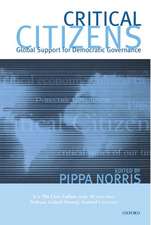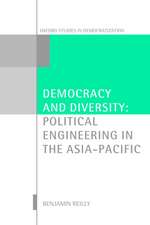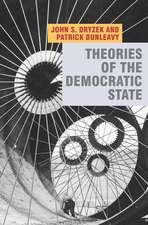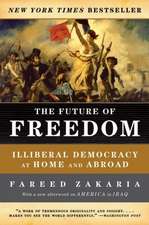Drugs and Democracy in Rio de Janeiro: Trafficking, Social Networks, and Public Security
Autor Enrique Desmond Ariasen Limba Engleză Paperback – 30 sep 2006
Much of the violence is the result of highly organized, politically connected drug dealers feeding off of the global cocaine market. Rising crime prompts repressive police tactics, and corruption runs deep in state structures. The rich move to walled communities, and the poor are caught between the criminals and often corrupt officials. Arias argues that public policy change is not enough to stop the vicious cycle of crime and corruption. The challenge, he suggests, is to build new social networks committed to controlling violence locally. Arias also offers comparative insights that apply this analysis to other cities in Brazil and throughout Latin America.
Preț: 268.10 lei
Nou
Puncte Express: 402
Preț estimativ în valută:
51.30€ • 53.56$ • 42.46£
51.30€ • 53.56$ • 42.46£
Carte tipărită la comandă
Livrare economică 04-18 aprilie
Preluare comenzi: 021 569.72.76
Specificații
ISBN-13: 9780807857748
ISBN-10: 0807857742
Pagini: 279
Dimensiuni: 160 x 237 x 19 mm
Greutate: 0.45 kg
Editura: University of North Carolina Press
ISBN-10: 0807857742
Pagini: 279
Dimensiuni: 160 x 237 x 19 mm
Greutate: 0.45 kg
Editura: University of North Carolina Press
Textul de pe ultima copertă
#151;the challenge is to build new social networks committed to controlling violence locally. He suggests this method could apply to cities elsewhere in Brazil and throughout the rest of Latin America. Based on ethnographic work in three favelas (shantytowns) over the past ten years, this analysis considers the harmful effects of illegal drug trafficking and associated violence on crime control, governance, and, ultimately, democratization in Brazil. Much of the violence is the result of highly organized, politically connected drug dealers, feeding off of the global cocaine market. Rising crime prompts repressive police tactics, corruption runs deep in state structures, the rich move to walled communities and the poor are caught between criminals and corrupt officials. Arias argues that institutional public policy is not enough to change the circumstancesamp;#151;the challenge is to build new social networks committed to controlling violence locally. He suggests this method could apply to cities elsewhere in Brazil and throughout the rest of Latin America.
Notă biografică
Enrique Desmond Arias is assistant professor of government at the John Jay College of Criminal Justice at the City University of New York.
